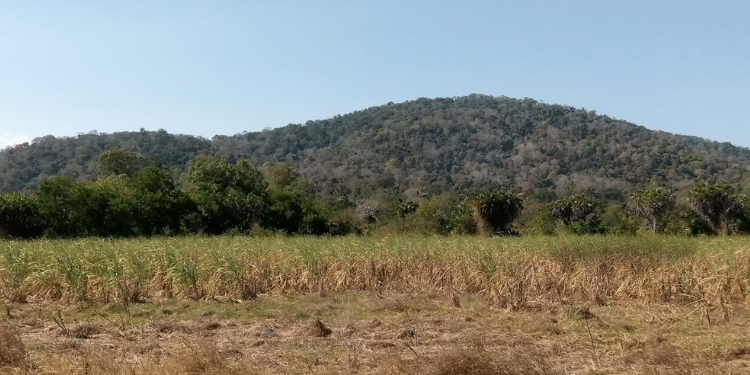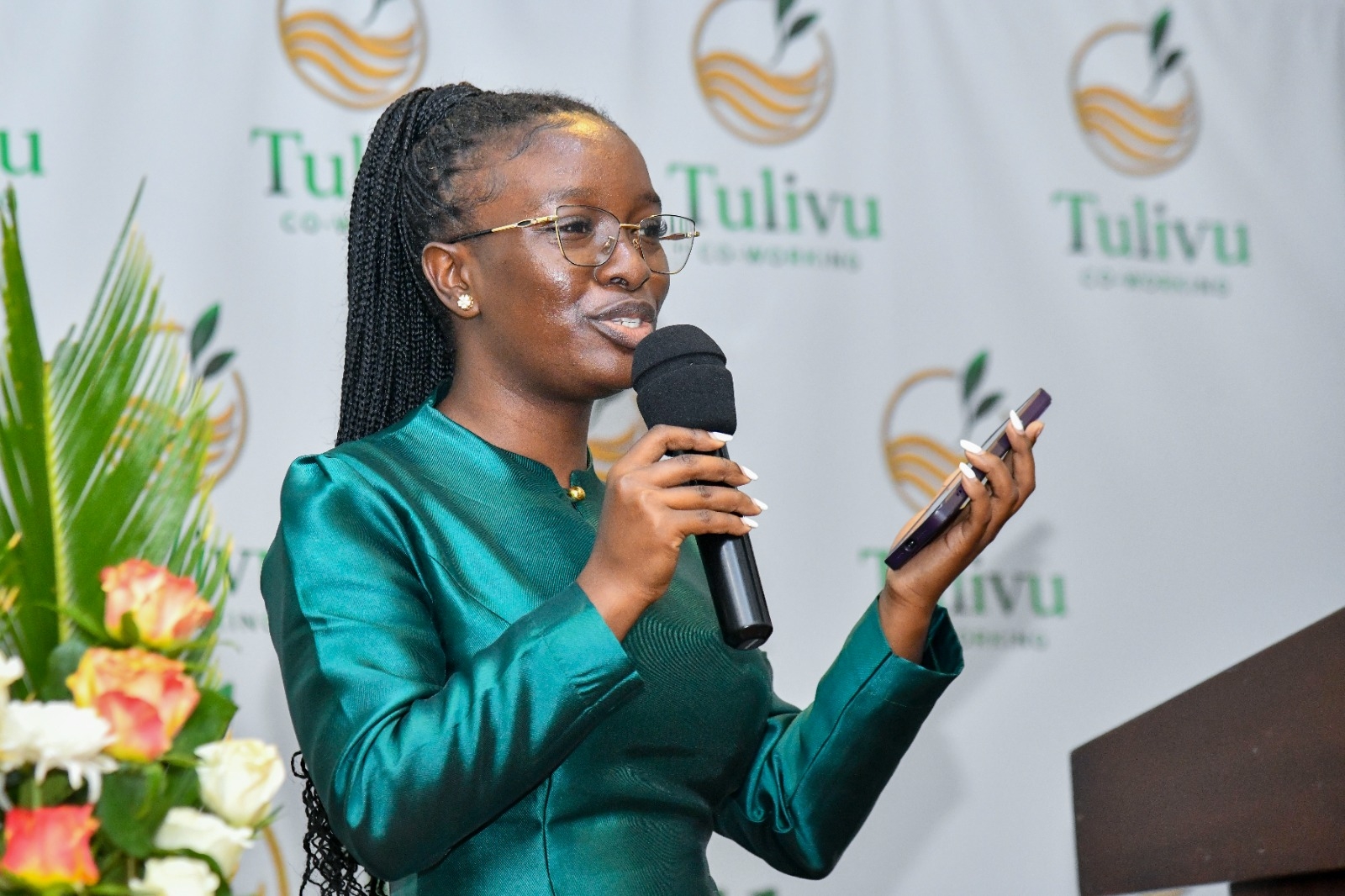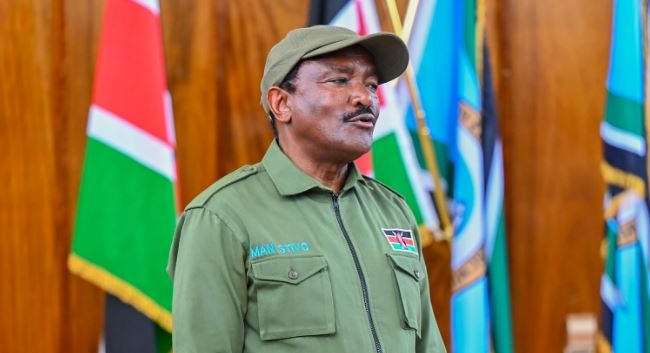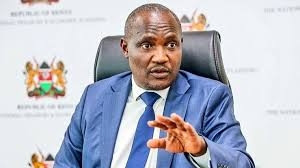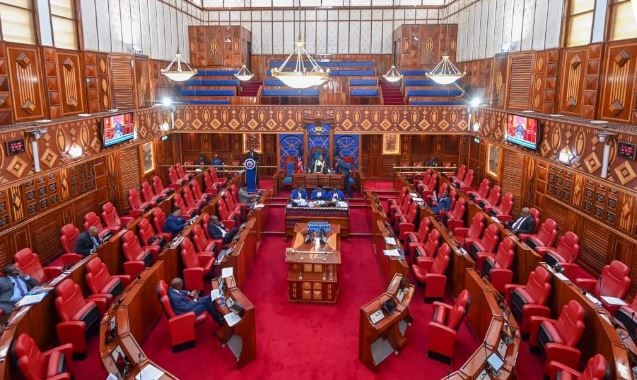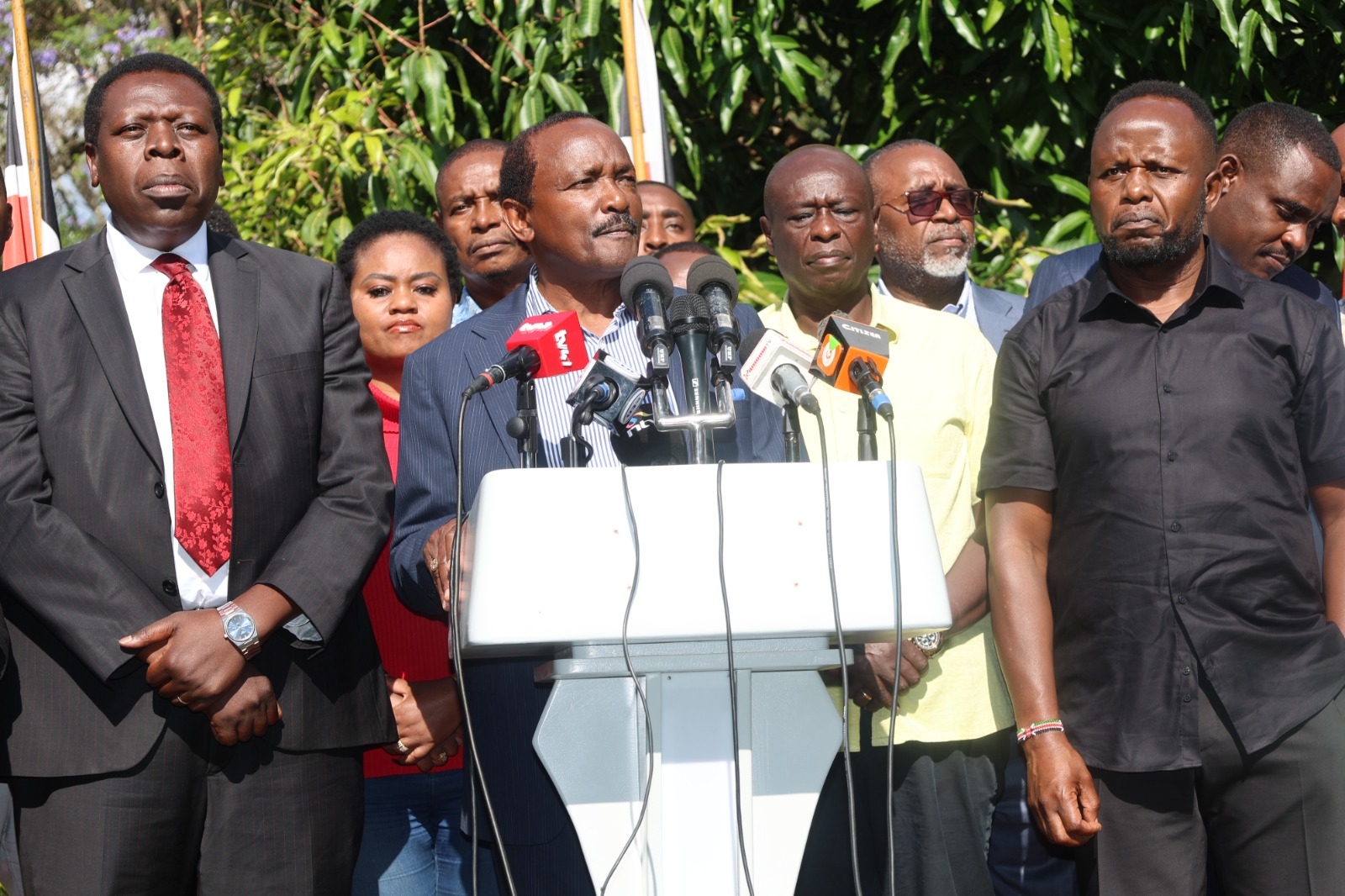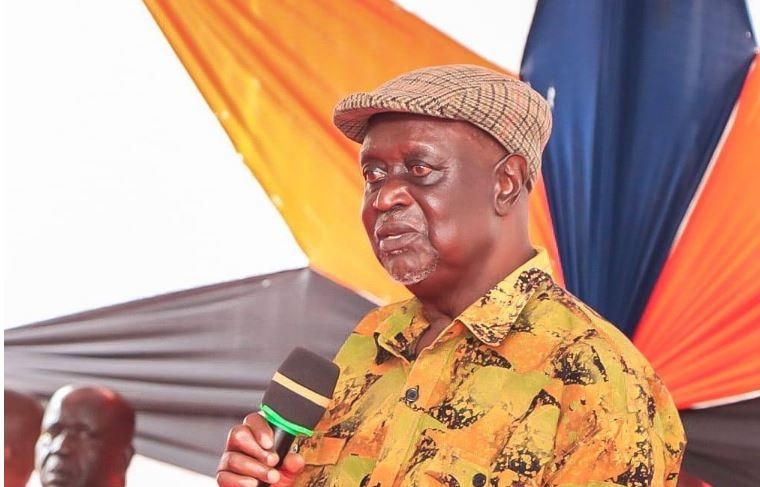Two years later, father of four John Maragoli, 62, still recounts devastating floods that submerged his four bedroom house at Borut village in Lake Nakuru.
He was left with nothing except a file of photos of his house. He stayed in a nearby rented houses with his family for a year, hoping the floodwater would recede so he could go back to resettle.
“At first, I didn't imagine water could overflow this far. But after a month, our houses were submerged. My garden and poultry house were destroyed. What a loss,” he said.
Maragoli has been a hawker in Nakuru town for more than a decade, and he relied on this job to feed his family. When his hawking business was at its peak, he saved enough money to buy a plot and built a three bedroom house at Borut near Lake Nakuru.
But when the Covid-19 pandemic came, his business suffered yet another big blow, forcing him to stay at home without anything to earn a living.
“Before I recovered from the losses caused by floods, Covid-19 came and killed my only source of income. I couldn't even afford a single meal a day for my family,” he said.
"I tried fishing and selling fish but the government banned it. The only thing we could do is just sit in groups on the road and wait for assistance from well wishers."
I tried fishing and selling fish but the government banned it. The only thing we could do is just sit in groups on the road and wait for assistance from well wishers
UNBEARABLE LIFE
The combined effects of climate change and the Covid-19 pandemic are threatening global development gains.
The 2021 Global Report on Internal Displacement shows that out of the 41 million new IDPs, 31 million people have been displaced by storms and floods, subjecting millions of people from developing countries to poverty.
One of them is Hellen Wesonga. She previously lived in her own house, but she was displaced by the flood and is now paying rent again.
“The disaster came as a shock to us, two of my neighbours died because of stress,” she said.
“Imagine you are displaced out of your own house, thinking how to cater for family needs with no source of income is hard.”
The negatives effect of the global pandemic in Kenya heightened the financial fragility for people like Helen, who were already affected by the climate disaster.
In 2020, World Bank’s 22nd edition of the Kenya Economic Update, 'Navigating the Pandemic', indicated that Covid-19 control measures imposed by the government further aggravated economic and social disruptions.
As a result, more than two millions Kenyans were entangled in poverty.
With no hope for recovery, Maragoli and his family became victims of internal displacement, and Covid-19 intensified their risks and economic hardship, making life unbearable.
“We couldn't afford food. We were relying on relief food from the government, which was hard to get."
As the situation became tougher, he became depressed, with suicidal thoughts confronting him every day.
COPING MECHANISM
Psychiatric Disability Organisation, a community-based mental health organisation in Nakuru, says many people are grappling with the impact of climate change and aftermath of Covid 19.
Founder and CEO Iregi Mwenja said this is affecting their mental health.
“This comes as a result of post-disaster traumas and anxiety about their future,” he said in a phone interview.
Maragoli decided to relocate his family back to his rural home in Nyahururu and went to Taita Taveta to look for greener pastures.
He started farming in a three-acre land that belonged to his eldest brother. He didn't realise he was engaging in a very enterprising venture.
“I only wanted something to make me busy so I couldn't keep thinking about my previous losses,” he said.
Maragoli began his farming business, a venture that relieved him from stress and gradually helped recover from his financial losses. Due to the presence of water that enabled him to irrigate his farm, it became an added advantage as he farms throughout the year. He started planting maize and beans.
“Since I started farming, the suicidal thoughts disappeared. I’m always busy in the farm and from the sale of the farm produce, I used it to support my family back home,” he said.
Maragoli is happy that he moved out of Nakuru, a place he described as a “scene of tragedy”. And farming has acted as a coping mechanism.
“When I realised I could do farming and get money, it gave me hope of restoring my life.”
With his farming business flourishing, he no longer relies on well wishers to help him, but he wishes the government would compensate them for their losses.
WAY FORWARD
According to the International Monetary Fund, the consequences of climate change are concentrated in low-income countries. Iregi said many people in these countries are vulnerable to mental health problems. He suggested that psychological and policy measures need to be taken alongside socioeconomic investment support.
“There is a need to train people and raise awareness on mental health. Also armed with skills that help them live through the disaster,” Iregi said.
"We need a clear policy on mental health and how disasters can be addressed. We need to be proactive and act before the disaster strikes."
Dr Kinyanjui Koimbori, a climate change expert based in Nakuru, said the government needs to implement policies that help in assisting victims of climate change disasters, such as floods.
“We need to fast-track policies and laws that protect victims of climate change disasters as well as compensation,” he said.
As climate change-related disasters hurt millions of people, ruining their sources of livelihood and even causing death, Iregi urged the government to utilise climate change funds to cushion them from economic losses.
He also added that a mental health policy should be implemented effectively.
It is evident that livelihood diversification cushions one from the shocks of disasters and pandemics such as Covid-19. Maragoli is testament to this.
“I can now comfortably support my family back = home. There is hope in farming. What I only need is capital to increase my acreage under crops,” he said.
This publication was produced with the financial support of the European Union. Its contents are the sole responsibility of Wesley Langat and do not necessarily reflect the views of the European Union.



